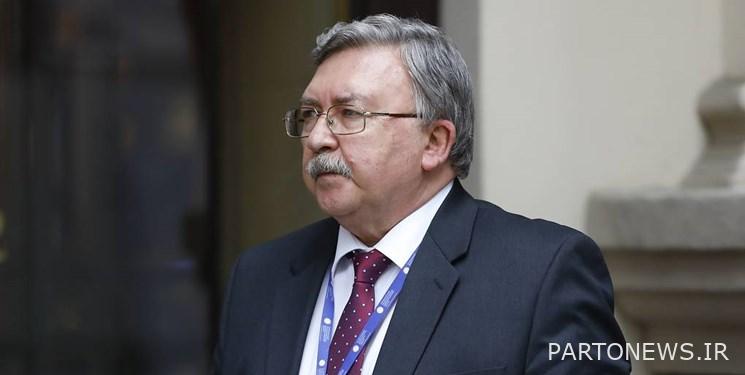Ulyanov: Scheduling should not determine the outcome of the Vienna talks

Russia’s representative to international organizations based in Vienna, Mikhail Ulyanov, tweeted to the Wall Street Journal, quoting a senior EU official, that he was concerned about the slow pace of the talks, according to Fars News Agency’s International Group. Timing could not reach a good agreement in Vienna, reacted.
“The timing depends on the participants in the Vienna talks, doesn’t it?” The Russian diplomat tweeted. Timing is very important in this situation, but it should not be the main factor determining the outcome of negotiations on the future of Barjam. If necessary, negotiators must speed up their work.
Russia’s envoy to the Vienna talks also tweeted yesterday (Friday) that Moscow felt urgent but opposed to bogus deadlines.
US Secretary of State Anthony Blinken reiterated claims that talks were slow and lacking time after talks with his Russian counterpart in Geneva yesterday, saying there was still a window to return to the 2015 nuclear deal. “Talks with Iran on a reciprocal return to adherence to the IAEA have reached a crucial moment. If no agreement is reached in the next few weeks, Iran’s continued nuclear progress will make it impossible to return to the IAEA,” he said.
The eighth round of talks on lifting sanctions in Vienna began a few weeks ago. While acknowledging that progress has been made in the negotiations, US and European officials have argued that the progress is not large enough that one can hope for an agreement to be reached.
Western diplomats have also always maneuvered on the element of time and tried to put pressure on the Iranian negotiating team by providing time frames. Analysts say the goal of the Western side in resorting to this tactic is to put pressure on the Iranian negotiating team and force them to back down from their demands for a guarantee and verification from the West.
However, Iran’s representatives in the Vienna talks have stated that the outcome is more important for Tehran than time. Tehran is trying to move Borjam, which from the first days of its implementation into an agreement devoid of economic interests for the Iranian side due to some US and Western policies, to a bilateral and balanced agreement.
After leaving the UN Security Council, the former US administration pursued a policy of maximum pressure on Iran, claiming that it would reduce Iran’s oil sales to zero in the short term.
The policy of maximum pressure against Iran had become one of the main axes of the Trump administration, and former US Secretary of State Mike Pompeo did his best to increase the pressure on the Iranian people.
Finally, the Trump administration ended its work on February 11, 2017, while it failed to achieve its goal of bringing Iran to its knees, although the Iranian people faced a lot of economic pressure during this period. These economic pressures were accompanied by an epidemic of coronation in the world, and the Trump administration even prevented Iran from gaining access to its own financial resources to purchase medicine and basic necessities.
Joe Biden had claimed before returning to the US presidency that he would return his country to the UN Security Council, but has so far refused to take the necessary steps to fulfill Washington’s commitments. The Biden administration’s insistence on maintaining the Trump sanctions has been one of the obstacles in previous rounds of sanctions talks in Vienna.
Another point of contention is Iran’s request for a guarantee from the West to stay in Borjam, given that Republican lawmakers in the US Congress have once again threatened to tear down Borjam if they come to power.
Iran has demanded that the United States provide legal guarantees that the incident during Donald Trump’s presidency will not happen again.
End of message /
You can edit this post
Suggest this for the front page
.

